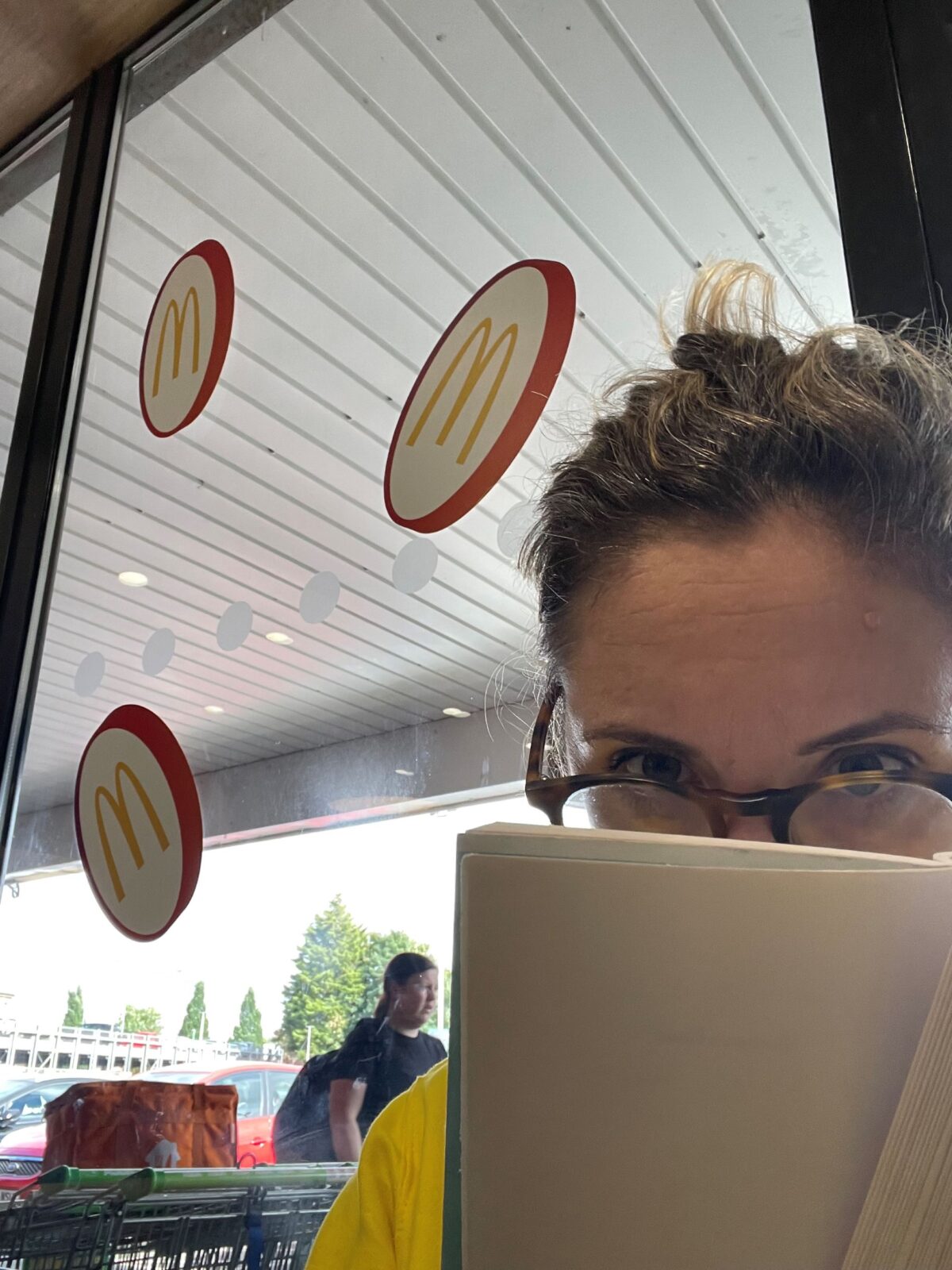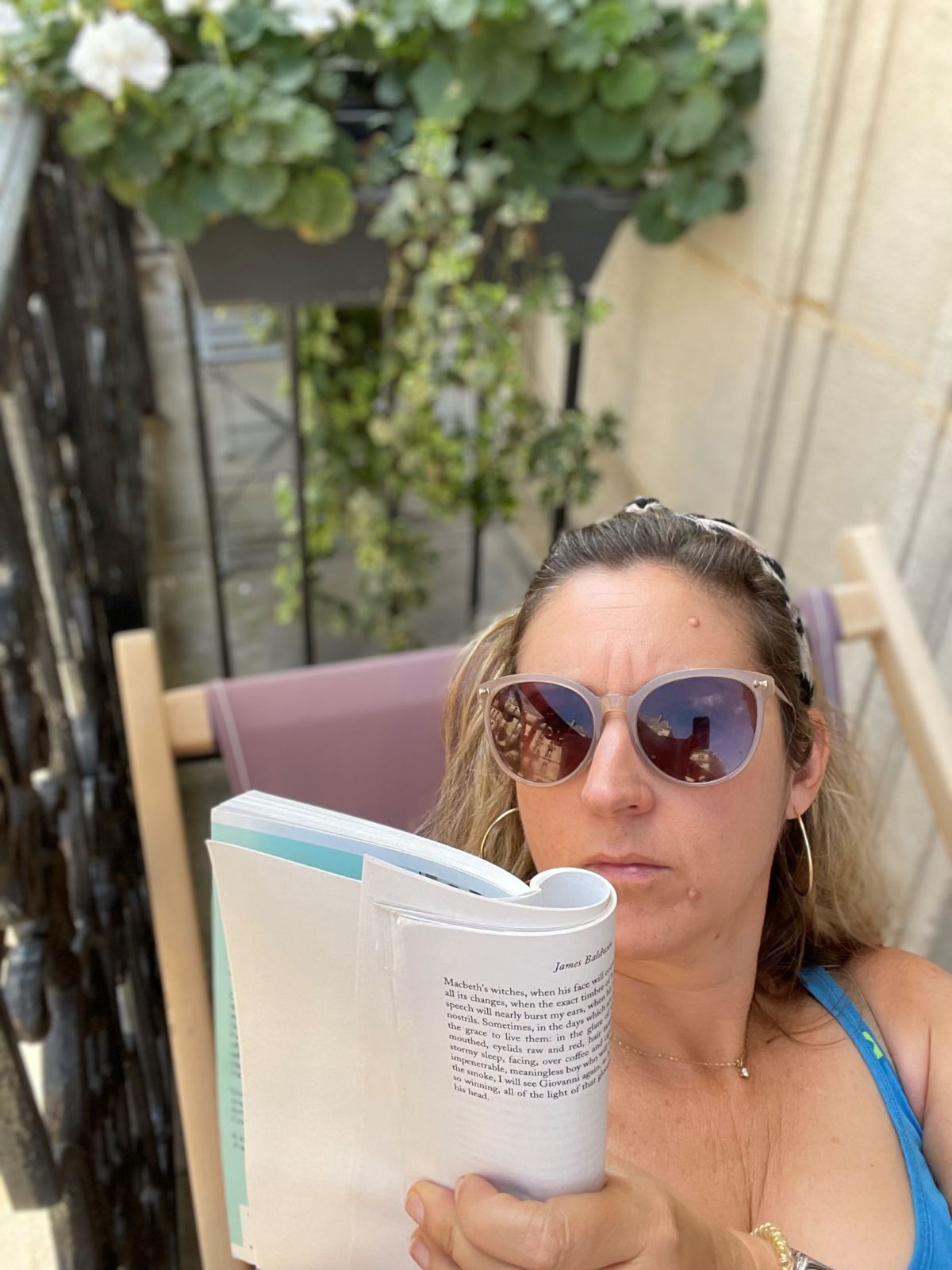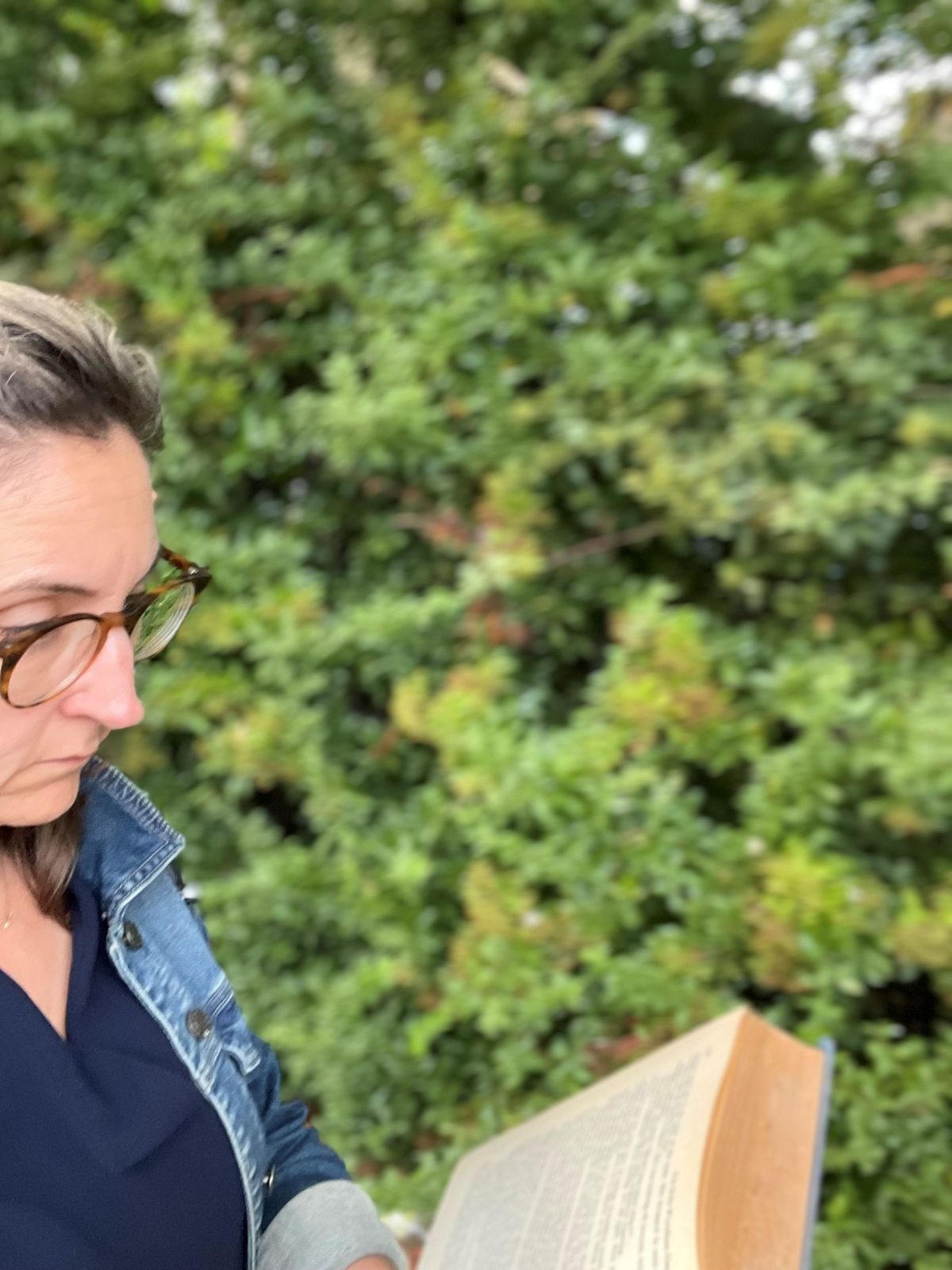Linda Bostrom Knausgard’s husband, Karl Ove Knausgard, wrote six horrifyingly honest volumes about his life. Of course, you cannot write about your life without writing about the people around you. So despite my never having read a book by this woman before, I know a lot about her. More about her than most people I know in real life. For example: Karl Ove had such an enormous crush on her that when they kissed for the first time he embarrassed himself by FAINTING WITH JOY.
This book is about her time institutionalized for depression, and especially about her electroconvulsive therapy, which is as bad as it sounds. I didn’t know people still did this at all, but apparently Sweden is an outlier globally in using it heavily. It was a gripping little book, about the institution, and about the fragments of memory left to her by the treatment. It was interesting to hear the other side of Karl Ove’s version of their marriage.
Let me end with this fun aspect of their apparently very artsy marriage. They are on vacation:
When we finally got to the hotel all we saw were palm trees and greenery, endless shadows and hills. You looked over the landscape and said, What the fuck is this?
It turned out we were in Mauritius and not in the Maldives, your dream destination, and I spent the entire vacation in the shade with the children saying, Oh, how lovely it is here in Mauritius. Mauritius. Mauritius. It served him right.
How do you not find out you are going to Mauritius not the Maldives until you actually get there?!?









